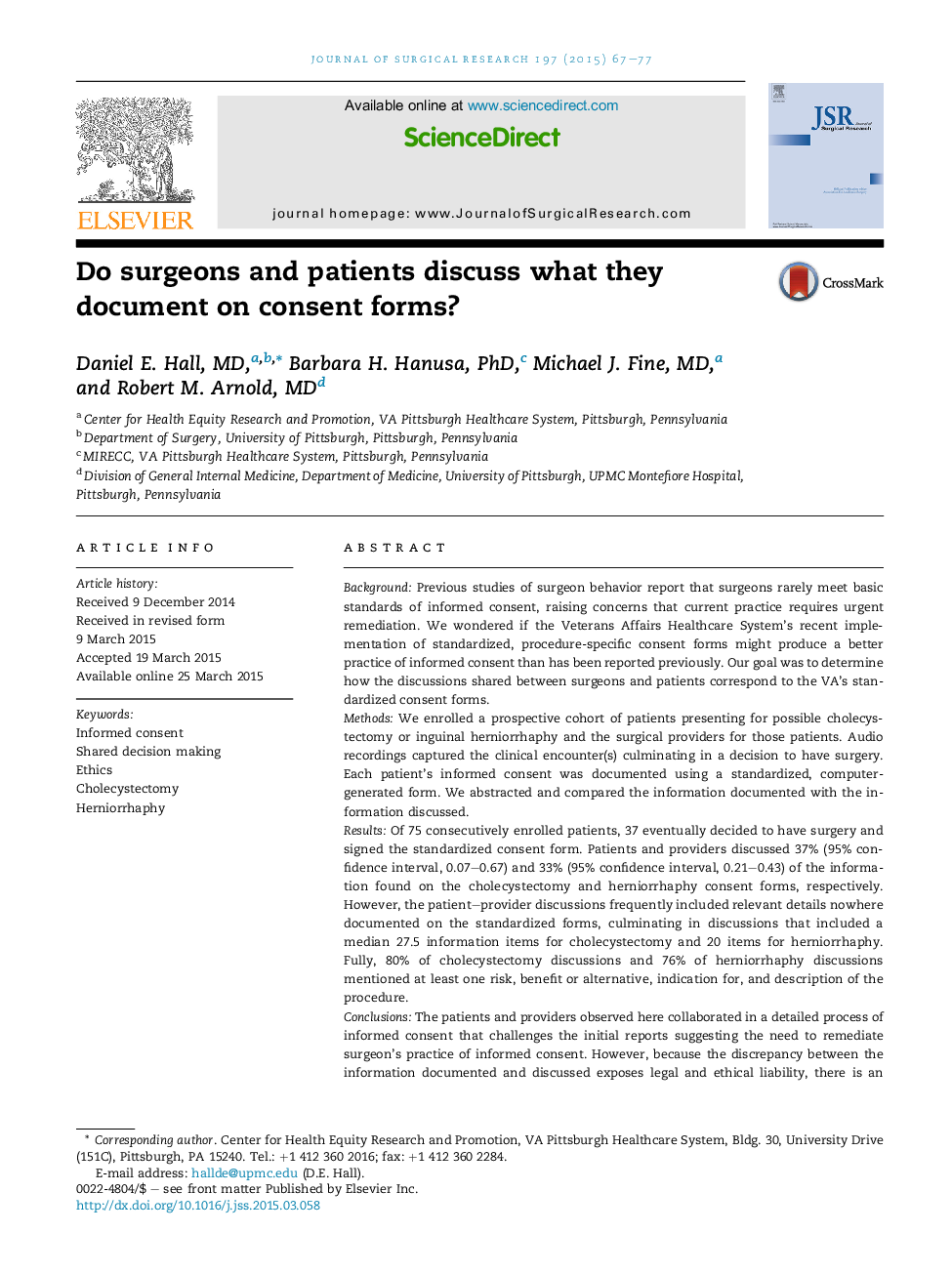| Article ID | Journal | Published Year | Pages | File Type |
|---|---|---|---|---|
| 4299795 | Journal of Surgical Research | 2015 | 11 Pages |
BackgroundPrevious studies of surgeon behavior report that surgeons rarely meet basic standards of informed consent, raising concerns that current practice requires urgent remediation. We wondered if the Veterans Affairs Healthcare System's recent implementation of standardized, procedure-specific consent forms might produce a better practice of informed consent than has been reported previously. Our goal was to determine how the discussions shared between surgeons and patients correspond to the VA's standardized consent forms.MethodsWe enrolled a prospective cohort of patients presenting for possible cholecystectomy or inguinal herniorrhaphy and the surgical providers for those patients. Audio recordings captured the clinical encounter(s) culminating in a decision to have surgery. Each patient's informed consent was documented using a standardized, computer-generated form. We abstracted and compared the information documented with the information discussed.ResultsOf 75 consecutively enrolled patients, 37 eventually decided to have surgery and signed the standardized consent form. Patients and providers discussed 37% (95% confidence interval, 0.07–0.67) and 33% (95% confidence interval, 0.21–0.43) of the information found on the cholecystectomy and herniorrhaphy consent forms, respectively. However, the patient–provider discussions frequently included relevant details nowhere documented on the standardized forms, culminating in discussions that included a median 27.5 information items for cholecystectomy and 20 items for herniorrhaphy. Fully, 80% of cholecystectomy discussions and 76% of herniorrhaphy discussions mentioned at least one risk, benefit or alternative, indication for, and description of the procedure.ConclusionsThe patients and providers observed here collaborated in a detailed process of informed consent that challenges the initial reports suggesting the need to remediate surgeon's practice of informed consent. However, because the discrepancy between the information documented and discussed exposes legal and ethical liability, there is an opportunity to improve the iMed system so that it better reflects what surgeons discuss and more frequently includes all the information patients need.
